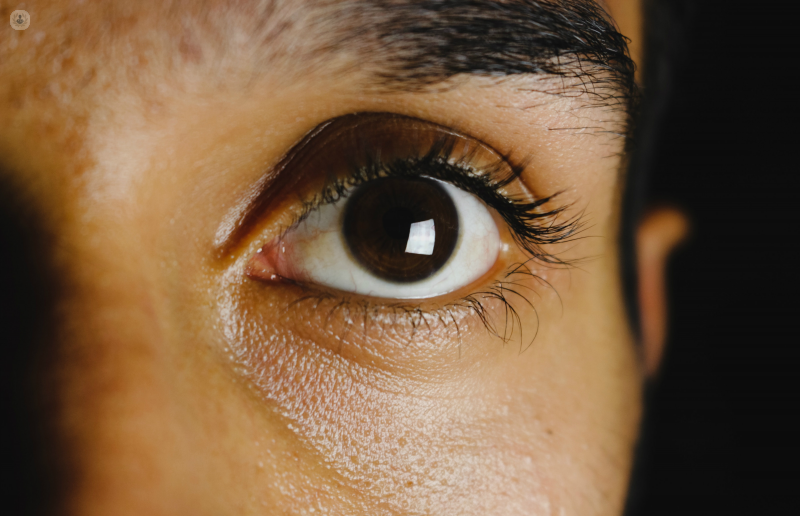

What is cornea guttata?
The cornea guttata is an ocular condition characterised by the appearance of droplet shaped bulges in this part of the eye. As they affect the corne, which is the main refractive element of the eye that allows clear vision of objects, they can cause vision loss or impaired vision. The cornea guttata is the initial alteration of Fuchs' dystrophy, a corneal disease that presents in several stages.

Prognosis of cornea guttata:
This is a condition that gets worst with age and, except in very advanced cases, does not require treatment.
Symptoms of cornea guttata:
The most notorious symptoms of cornea guttata are those derived from the corneal thickening that it entails:
- Loss of transparency of the cornea
- Macular oedema (the build-up of fluid in the macular)
- Pain (in some cases)
Vision may be compromised in more severe cases with loss of sharpness in the perception of images, which is a more marked symptom in the morning.
Medical tests for cornea guttata:
The diagnosis of cornea guttata is clinical, with observation of the cornea. In early stages, an endothelial cell count can be performed.
What causes cornea guttata?
The main causes of cornea guttata are initially due to genetic inheritance, as it is directly related to structural problems in the lens. However, there may be a situation in which there is no history in the patient's family and the appearance of this condition is due to the modification of the gene in the human genome.
Can cornea guttata be prevented?
As with many other conditions, the finding of a cornea guttata is usually a chance finding, so there is no way to prevent it. A complete, annual eye exam is recommended though for overall eye health.
Treatments for cornea guttata:
To alleviate the symptoms, special ointment or eye drops are applied, but in patients where the cornea guttata affects their daily life, a corneal transplant can be performed, a very common and simple procedure.
Which specialist treats cornea guttata?
Ophthalmologists are responsible for preventing, diagnosing and treating diseases that affect the patient's eyes and visual capacity, such as cornea guttata.
